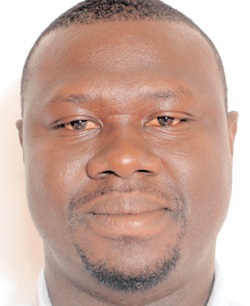
This edition of the summit addressed the topic "What Role Will Education Play for the Future Workforce in the Fourth Industrial Revolution?".
There were four main panel discussions of which Dr. Nyarko partook in two. The topics for the respective panel discussions of which Dr. Nyarko participated as key speaker were "Work Integrated Learning" and "The Role of Policy and Regulation in Improving Education".
Speaking on "Work Integrated Learning (WIL)", Dr. Nyarko emphasized the importance of work incorporated learning with strong references to Ghana's National Service Scheme (NSS) and some of President Akufo-Addo’s special initiatives such as the Nation Builders Corp (NABCO), 1 District 1 Factory (1D1F) and others, of which he convincingly explained will provide students with the much needed opportunities to work in industries, and through that garner the much needed knowledge and experience. Apart from Dr. Kingsley Nyarko, other panelists for WIL discussion included Daniel Adkins,CEO,Middle East, Transnational Academic Group and Charisse Drobis, Head of Career Management Services, University of the Witwatersrand (Wits) Business School (WBS).
During the second panel discussion on the topic "The Role of Policy and Regulation in Improving Education", the Executive Secretary of NAB threw more light on the work of NAB. He underscored that at the heart of tertiary education delivery is the importance of continuous scrutiny of institutions and their programmes to assure quality, and also ensure that the programmes offered by the respective institutions are in tandem with the national policy framework and the developmental needs of Ghana.
Dr. Nyarko advanced that as part of efforts by NAB and the support of stakeholders to improve quality, the current admission requirements into teacher training institutions have been streamlined to be same for all other programs in the tertiary education institutions.
Touching on the nation's focus on Science, Technology, Engineering and Mathematics (STEM) programs, Dr. Nyarko was of the firm belief that it was in the right direction because STEM programmes are the ones that could engender Ghana's rapid development, especially as the world is stepping into the Fourth Industrial Revolution with the speed of light.
He further lauded the Government of President Nana Addo Dankwa Akufo-Addo for his promotion and commitment to the development of Technical, Vocational Education and Training (TVET) at both the secondary and tertiary education levels. This, he postulated, would equip the youth of Ghana with the requisite skills needed for the country’s industrialization drive.
Prof. Narend Bajinath, CEO South Africa’s Council on Higher Education and Prof Kirk Semple, a Professor of Environmental Microbiology at Lancaster University, UK were the other panelists on the second session.
The summit attracted Chief Executive Officers (CEOs), heads of reputable institutions and academics from Africa, Australia, Middle East and the Americas. Read Full Story






















Facebook
Twitter
Pinterest
Instagram
Google+
YouTube
LinkedIn
RSS